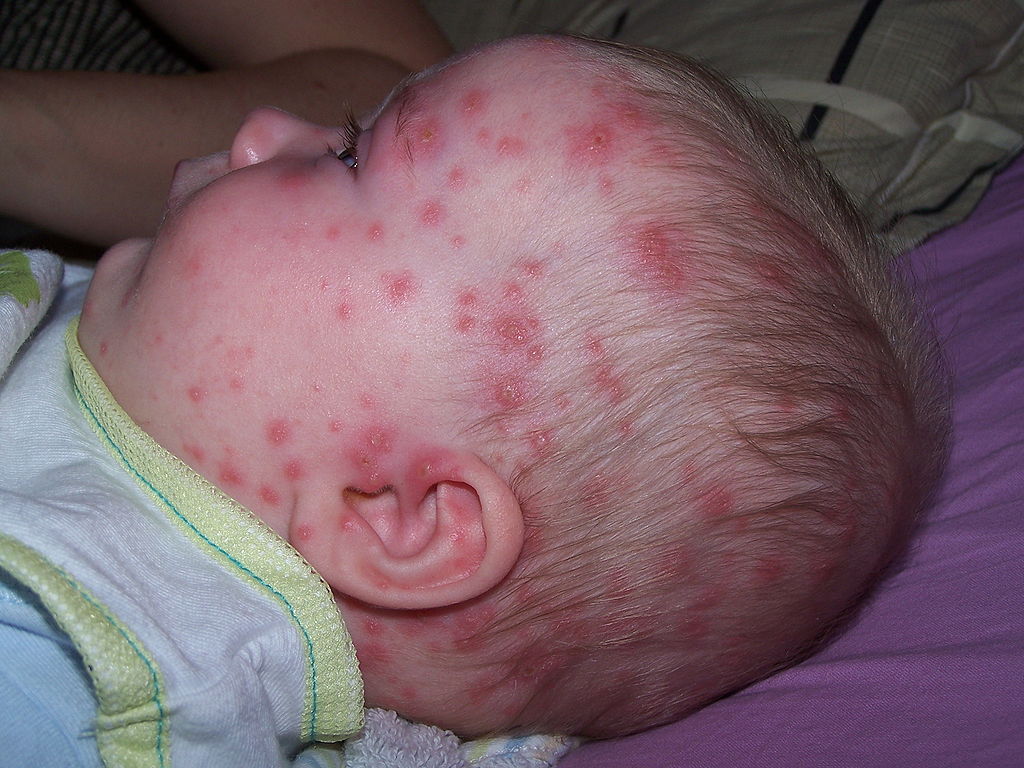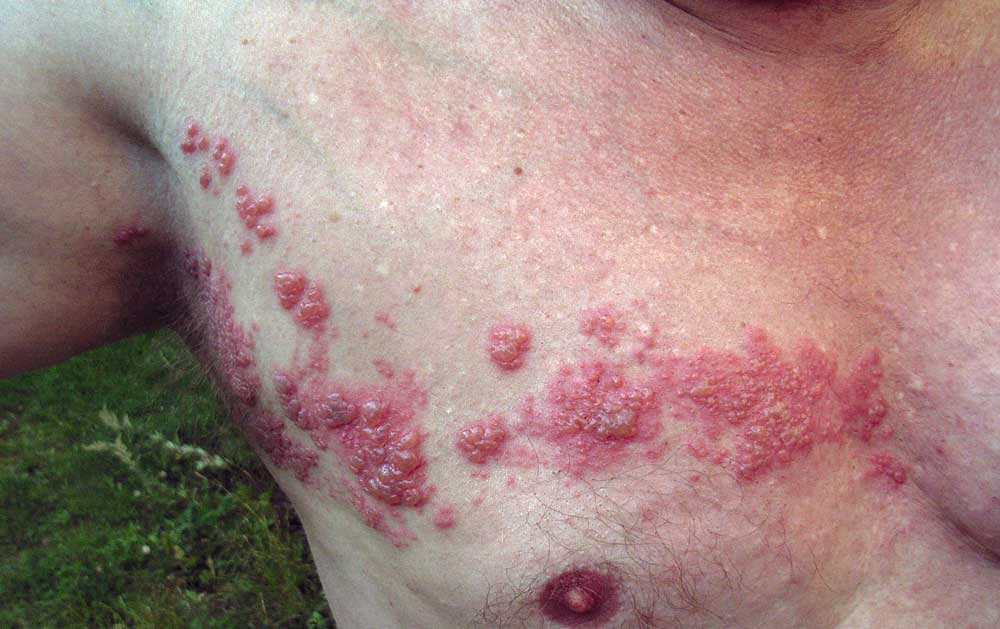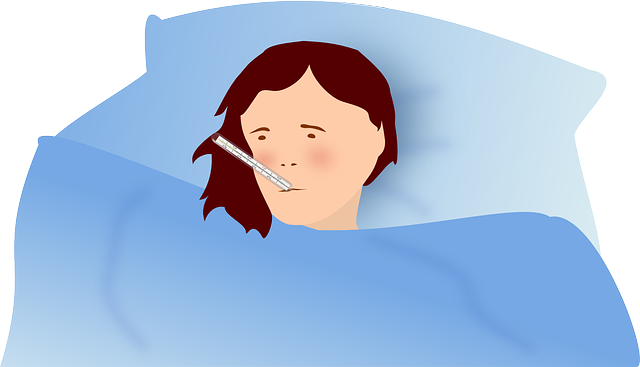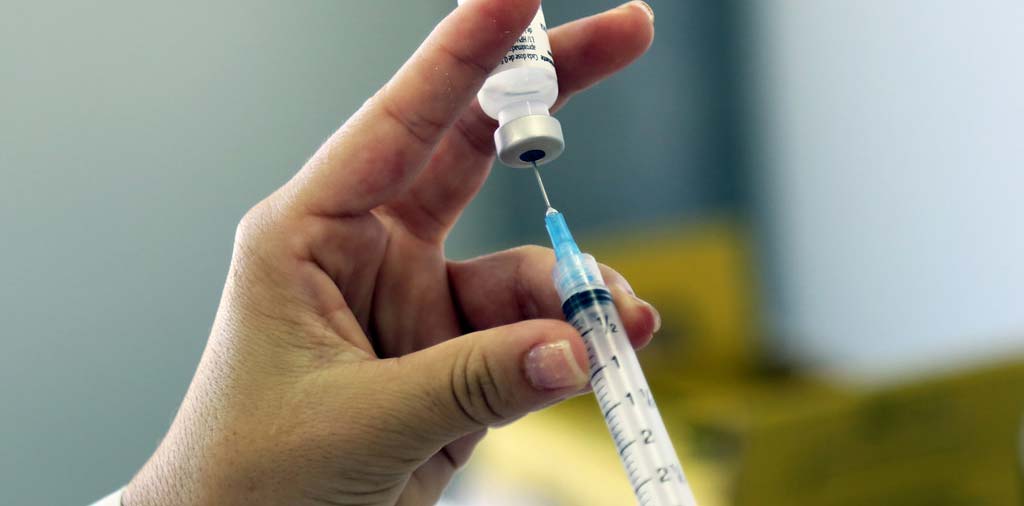Private Vaccinations
Private Vaccinations To Protect Your Health

The Walcote Practice offers a wide range of private vaccinations to help protect your health quickly and conveniently. Many will not be available on the NHS for all patients but nonetheless may be recommended as important preventative measures for you or your family.
These vaccines are listed below. Please click on any that interest you to view further information. For your reassurance, all vaccinations at The Walcote Practice are administered personally by our experienced private GPs.
Vaccinations for Foreign Travel
Please see our Travel Health page for further information
RSV Vaccination
What is Respiratory Syncytial Virus (RSV)?
RSV is a highly contagious virus that is responsible for a significant burden of infection in the UK, including 175,000 GP visits, 14,000 hospital admissions and almost 8,000 deaths every year. RSV disproportionately effects infants and older people, particularly those with underlying respiratory conditions. RSV typically spreads most within the community from the Autumn to the end of Spring.
About the RSV Vaccination
The RSV vaccination has only recently become available in the UK. It is safe and effective, with only one dose required to confer lifelong protection.
The Walcote Practice in Winchester, Hampshire, is able to administer the RSV vaccination privately to adults aged 60yrs and over at any time of the year (including alongside a seasonal flu vaccination).
Should you have any questions, or wish to book an appointment to receive the RSV vaccination at The Walcote Practice, please contact reception on 01962 828715 within office hours.
Please note that the NHS’s RSV Immunisation Programme is ensuring that pregnant women are vaccinated in order to protect the baby. The NHS is also offering RSV vaccination at present to patients turning 75yrs in 2024 and up to those aged 80yrs.
Meningitis B Vaccination
What is Meningitis B?
Meningitis B is the most common cause of bacterial meningitis in the British Isles. Meningococcal meningitis and septicaemia (blood poisoning) are the leading infectious cause of death in children aged under five years in the UK. The risk is highest for babies aged under one year, although people of every age are at risk of meningitis. The disease can also lead to some extremely serious and permanent disabilities and after-effects amongst children and adults including limb amputations, deafness, balance issues, sight problems, learning disabilities, behavioural difficulties, kidney damage and more.
About the Meningitis B Vaccination
The Walcote Practice in Winchester, Hampshire, is able to administer the Meningitis B vaccination (Bexsero) privately to both adults and children.
Bexsero is an inactivated vaccine (not a live vaccine). Results from medical trials show that the vaccine triggers a strong immune response in infants, toddlers and adolescents. Studies have predicted that the Meningitis B vaccination will cover approximately 88% of Meningitis B strains circulating in the UK and 78% of Meningitis B strains in Europe.
The Meningitis B vaccination has a good safety profile. As with all drugs, vaccines can cause side effects which may include soreness/redness/swelling/hardness of skin at the injection site, fever, lack of appetite, muscle aches, irritability, sleepiness and rashes.
More than one dose of the vaccine is needed for sufficient protection – the total number ranges from 2-4 doses and depends upon the age of the person being vaccinated.
Should I have my child vaccinated against Meningitis B?
Babies born on or after 1st July 2015 are now being vaccinated against Meningitis B as part of their routine NHS immunisation schedule, and those born between 01st May and 30th June 2015 will also be offered the Meningitis B vaccine by the NHS.
Older babies and children will not be offered this vaccine on the NHS, so the decision on whether to vaccinate often comes down to personal choice.
The current incidence of meningitis B amongst the under 1s is around 22 cases per 100,000, reducing to 5 cases per 100,000 in the 1-4 age group. The incidence of the disease amongst older age groups is substantially less except during the later teenage years where an increase in incidence does occur.
However, the fact is that Meningitis B is a deadly and disabling disease with such a rapid onset that it can sadly be very hard to detect and treat it time to prevent serious permanent disabilities and even death. Because of this, some parents may wish to have their child protected however small the risk of them contracting the disease.
If you wish to book a Meningitis B vaccination, or to hold a discussion regarding whether or not to receive the vaccine with one of our expert private GPs, please book an appointment on 01962 828715.
Signs & Symptoms of Meningitis & Septicaemia
Meningitis and septicaemia can take hold very fast and kill in hours, so it is very important to know the symptoms. These can be very non-specific to begin with, including fever, vomiting, malaise and lethargy. Don’t wait for the ‘classic’ signs of meningitis to develop before calling for help…if someone is very ill then get urgent medical help immediately – minutes can save lives, it’s a race against time.
Other symptoms may include a stiff neck, severe headache and a dislike of bright lights, but these are less common in young children. Additional things to look out for include limb/joint/muscle pain, diarrhoea, cold hands and feet, shivering, pale or mottled skin, difficulty (or fast) breathing, rash (which may be still visible during the tumbler test), being very vacant/sleepy/difficult to wake, confusion, being delirious, seizures (fits).
Babies may show other signs when they have meningitis or septicaemia such as:
- A tense or bulging soft spot on their head
- Refusing to feed
- Being irritable when picked up, with a high pitched or moaning cry
- A stiff body with jerky movements, sometimes arching of the back, or else floppy and lifeless
- Fever is often absent in babies less than three months of age
To find out more about meningitis, please visit the Meningitis Research Foundation website by clicking here.
Chickenpox Vaccination

Chickenpox is a highly infectious disease caused by the varicella-zoster virus. The virus causes a fever and a rash of red, intensely itchy spots which may cover the whole body. The spots turn into fluid filled blisters (containing the virus) and then crust over to form scabs which eventually drop off.
Chickenpox is most common in children under the age of 10, when it usually causes what is considered to be relatively a mild illness with complete recovery. Nevertheless, children can feel very miserable and irritable, and some permanent scarring may result. Occasionally, even in healthy children, the virus may lead to a much more serious illness such as pneumonia, meningitis, bacterially-infected skin lesions and even death.
When caught at an older age, the virus tends to cause a more severe illness with a greater potential for serious complications such as pneumonia, eye problems, encephalitis, septicaemia, a variety of infections and it can also cause death. Chickenpox is particularly risky if caught by pregnant women, young babies or people with a weakened immune system. For this reason, people with chickenpox should always stay away from these vulnerable groups (ideally at home if possible) until all of their spots have scabbed over, meaning that they are no longer infectious.
The chickenpox virus lies dormant in the nervous system after recovery, but it may reactivate in later life to cause shingles.
About the Chickenpox Vaccination
In the UK, the chickenpox vaccination is not part of the routine childhood vaccination schedule (however it is routinely given to children in the USA). Long-term trials over a lifetime have not yet been carried out, however the recommended two doses of the vaccination are estimated to offer 98% protection against chickenpox in children and 75% protection in adolescents and adults. Immunity is good for up to at least 20 years after the vaccination, with ongoing studies investigating how immunity following vaccination compares with immunity following the disease itself over a range of time periods.
The chickenpox vaccination is a live vaccine so occasionally it may be possible to develop the infection after vaccination. The vaccine can be given to both children and adults. In some cases, people may develop chickenpox at some point in the future even after vaccination but it is generally much milder.
The chickenpox vaccination is considered to be safe, with generally mild side-effects which include pain, redness/rash at the injection site, mild fever and irritability. It is not yet clear how the chickenpox vaccination affects the chances of a person developing shingles in later life, although there is now a shingles vaccination available which significantly reduces this risk.
If you would like discuss the possibility of you or your child receiving the chickenpox vaccination, or to go ahead with booking the vaccination, please call 01962 828715.
Shingles Vaccination
What is Shingles?

Shingles, also known as Herpes Zoster, is an infection of a nerve and the surrounding skin caused by the varicella-zoster virus (which also causes chickenpox). It leads to a painful skin rash that develops into itchy blisters containing virus particles. Shingles is more common in people over 70, although it can happen at any age. You can’t catch shingles – it is caused by the reactivation of the chickenpox virus in people who have previously had chickenpox. This can occur as a result of increasing age, medication, illness, stress etc. Around one in five people who have had chickenpox will go on to develop shingles.
Shingles begins with a burning feeling in the skin, followed by a rash, often one-sided, of very painful fluid-filled blisters. The blisters may burst and turn into sores before healing. The rash can be extremely painful, with sufferers unable to bear even the feeling of their clothes touching the affected skin. You can develop shingles multiple times.
Shingles usually resolves within two to four weeks, especially if medication is received early. However, in some cases complications can occur which may be:
- Immediate – such as bacterial skin infections, pneumonia, hepatitis, encephalitis (inflammation of the brain), meningitis
- Long term – including lingering pain which can last long after the rash has disappeared (occurs to one in five people and may for last years) and ongoing problems of the eye, ear or face.
Shingles is fatal for around 1 in 1,000 people who develop it aged 70 or over.
When you have active shingles, you are in danger of transmitting the chickenpox virus to others.
About the Shingles Vaccination
Shingrix is an inactivated vaccine which augments the immune response against the chickenpox virus. Two doses are needed to significantly reduce your chances of developing shingles. Even if you do go on to develop shingles at some point later, your symptoms are likely to be milder and the illness shorter.
The shingles vaccination also works very well even in people who have had shingles before as it boosts immunity against further shingles attacks. The vaccine is considered to be very safe with few side effects.
The NHS makes the shingles vaccination routinely available to people aged 70 and over, however it is possible to have the vaccine anytime from the age of 50, and from 18yrs if you have immunosuppression.
The Walcote Practice can provide the shingles vaccination privately to those who wishes to guard against the risk of developing shingles. To book an appointment to receive a private shingles vaccination, please phone 01962 828715.
Flu Vaccination
The Walcote Practice is able to provide you with the age appropriate seasonal quadrivalent flu vaccination, available to adults and children, both registered and non registered for £25 (no consultation fee applies). The flu vaccine is included within our Healthplan.
The flu is a contagious virus spread by coughs and sneezes. Symptoms start suddenly and can be severe, including:

- fever of 38C (100.4F) or above
- tiredness and weakness which may last for several weeks
- headache, general aches and pains
- dry, chesty cough
- blocked or runny nose, sneezing, and sore throat
Flu can make you feel very exhausted and unwell, meaning that you may need to stay in bed and rest until you feel better.
If otherwise fit and healthy, you may not be eligible for a free NHS flu vaccine. You may, however, still find it a useful option to receive the vaccine privately if you wish to significantly reduce your chances of catching flu, if you work/commute with many people or if you feel you could not afford the time needed to recover.
The flu vaccination is available from The Walcote Practice from 1st October each year. We continue
to see the impact of the pandemic and this winter we will need to consider co-circulation of COVID-19
and flu. This makes it all the more important to protect yourself and others through flu vaccination.
Those most at risk from flu are also those most vulnerable to COVID-19. Whilst it does not yet guarantee 100% protection against the flu, the flu vaccine does significantly reduce your chances of catching the virus.
For people aged between 18yrs and 50yrs we will offer the cell derived trivalent vaccine from
Seqirus, which is the first line recommendation by the Joint Committee of Vaccination and Immunisation
(JCVI) this year. Three strains, including swine flu, are targeted based upon predicted prevalence.
For over 50yr olds, we will offer the adjuvant trivalent vaccine, also manufactured by Seqirus and a
first line recommendation, which provides a better level of immune stimulation for this age group.
For children aged two to eighteen years, we recommend adhering to the national and school based
FLUENZ nasal spray (LAIV) programme, which is likely to be rolled out in advance of private availability
and provides better protection than the injection in this age group. For those children ineligible for the
public programme, we can also provide the Seqirus cell based trivalent flu injection, after appropriate assessment. Parents who wish to vaccinate children aged between six months and two years are asked to discuss individual cases with one of our doctors.
The flu vaccination is quick to receive, with only one dose needed. The best time to receive it is in the
autumn, ideally before early November, but really the sooner the better. You may wish to receive the
flu vaccination every year so you stay protected, as the viruses that cause flu change every year.
COVID-19 booster vaccinations will continue to be provided through the public system (NHS) – there
is no private stock allocation.
To book an appointment to receive the flu vaccine please call 01962 828715.
Pneumococcal Vaccination
About Pneumococcal Infections
Infections with pneumococcal bacteria can cause a variety of symptoms including fever, aches and pains, headache, chest infections (pneumonia), septicaemia (blood poisoning) and meningitis. Groups most at risk of these infections include the elderly, infants and people with weak immune systems, however anyone can be infected with pneumococcal bacteria.
About the Pneumococcal Vaccination
The NHS offers babies the childhood pneumococcal vaccine during their routine immunisations, and it also offers the PPV adult pneumococcal vaccination to people aged over 65.
At The Walcote Practice, we are able to offer the PPV pneumococcal vaccine to adults of all ages. The vaccine protects against 23 strains of pneumococcus and covers 96% of the types of pneumococcal bacteria that cause serious diseases in the UK. One vaccination gives lifelong protection in most people. The pneumococcal vaccination is an inactivated vaccine with a good safety profile. Common side effects include a mild fever or redness/hardness/swelling at the injection site.
If you would like to protect yourself against the most serious strains of pneumococcal bacteria in adults, please book a vaccination appointment with one of our expert private GPs by phoning 01962 828715.
The Walcote Practice is proud to have been one of the first clinics in the UK to offer the HPV vaccine, Gardasil 9. This protects against nine types of human papilloma viruses (HPV) which are responsible for causing sexually-transmitted cancers and genital warts.
HPV (Gardasil 9) Vaccination to Protect Against Cancers of the Cervix & Other Cancers in Females & Males
What is HPV?
There are many different types of HPV. Some can cause a range of mild conditions such as warts and verrucae. However, other types of HPV can lead to very serious diseases such as cancers of the cervix, vagina, vulva, anus, penis, throat and mouth.
HPV is very common and can easily be spread by sexual activity, even when condoms are used. Because HPV often has no signs or symptoms, males and females can catch the virus without knowing it and then pass it on.
Exposure can happen with any kind of activity that involves genital contact with someone who has HPV — sexual intercourse isn’t necessary, but it is the most common way to catch the virus. About half of new HPV infections occur in 15-24 year olds.
About the HPV vaccination

The HPV vaccination, Gardasil 9, protects against seven types of HPV virus which otherwise together cause in females:
- 90% of HPV-related cancers of the cervix
- 85% of HPV-related vaginal cancers
- 90% of HPV-related cancers of the vulva
In both males and females, Gardasil 9 helps protect against 90% of HPV-related cancers of the anus, as well as protecting against the two types of HPV that cause 90% of HPV-related genital warts. Gardasil 9 is also very likely to provide beneficial effects against cancers of the penis, throat and mouth.
It is best to give the HPV vaccination before adolescent experimentation or sexual activity begins as the vaccine will not be as effective if a HPV infection is already present. Nevertheless, even if such activities have commenced, the vaccine can still offer protection against the relevant types of HPV to which the person has not yet been exposed. New research suggests that the vaccine may also boost the immune response against the relevant types of HPV to which the person has already been exposed, and that it may perhaps be suitable for people of all ages, however this requires further investigation.
In the UK, the HPV vaccine is routinely offered to girls and boys aged 12 and 13 years by the NHS.
The Gardasil 9 vaccination is licenced for both girls and boys from nine years of age. It is administered in two doses up to the age of 14 years and in three doses over the age of 15 years, both courses over a six month period.
As the HPV vaccination does not protect against all types of HPV, it is not completely guaranteed to prevent cervical cancer. It is therefore still very important for all women to attend regular cervical screening, even if they have had the HPV vaccination as a teenager. This is because cervical screening can detect early pre-cancerous changes in cervical cells, allowing early treatment before cancer develops.
The Gardasil 9 vaccination is considered to be safe in that the benefits outweigh the risks. There have been some lingering safety concerns in the USA related to Gardasil regarding a relatively small number of reported serious side effects. The NHS states that, “For isolated cases of other medical conditions reported, the available evidence at the moment does not suggest that vaccines caused these conditions.”
The Walcote Practice offers the HPV Gardasil 9 vaccination privately. If you would like to discuss the vaccine further or to book an appointment to receive the HPV vaccination, please phone 01962 828715.


